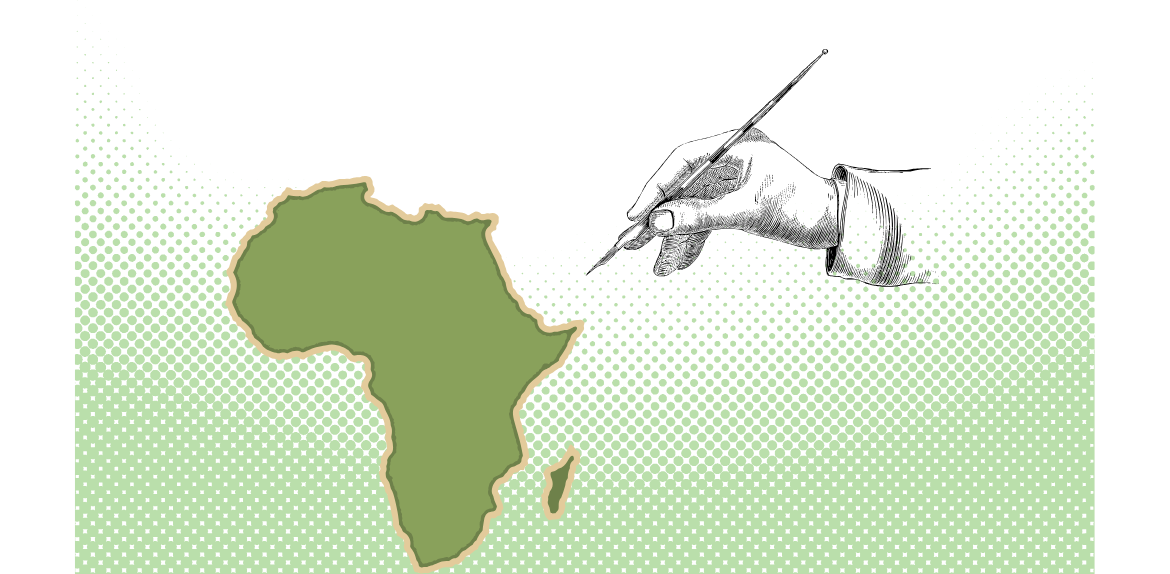“Until the lion tells the story, the hunter will always be the hero”, an African proverb that speaks volumes and is more relevant today than ever. Most African cultures have a tradition of passing their histories through generations by telling stories, which is great. Still, the main challenge is that it gets watered down, modified, or polluted as time passes. That is why documenting our stories, at least the ones we know of is important today, and can be stored in different cloud platforms.
A recent event was after the ‘Nigerian End SARS protest’, a nationwide protest across Nigeria against police brutality in 2020 and a book titled “Sorosoke” by Berlin-based author Trish Lorenz published in May 2022. For context, the Nigerian Police Force formed the Special Anti-Robbery Squad (SARS) in 1992 to combat armed robbery and other serious crimes, but the squad became notorious for arresting, harassing and intimidating citizens mainly the youth. The protesters demanded that the government dissolve SARS, engage in police reforms and better governance. The protest unfortunately led to the loss of lives after members of the Nigerian military opened fire on the protesters in Lagos. Trish Lorenz interviewed over 30 entrepreneurs, artists, and activists in her book and her book was met with criticism after her interview that suggested that she coined the word, ‘Sorosoke’, a Yoruba word that means “Speak up”. Some Nigerians questioned her choice of writing the book when there were many qualified Nigerians who could write the story. In my opinion, until the lion knows how to write, the hunter’s story is the reality.
I have two stories to emphasize my points. First, I was chatting with a family friend and professor of Linguistics at St. Thomas University, Canada, but originally from Cameroun. Professor Mbarga shared his journey into about five years of research into his roots and he discovered a couple of codes that his progenitors used to document their stories from one generation to another. His passion for connecting with his ancestors led him to publish a book (book title), which will preserve the stories for years to come. At the time of sharing the story, the people he got the stories from were all dead, which would have become a regret if he had procrastinated.
The second story was that of another researcher, who travelled to over 400 sites in Italy in search of Canadian soldiers and their experiences during the Second World War. He narrated a story of one of his relatives who fought in the war, but his name was not found in any of the war archives. However, there was a particular character with the same date of birth, number of siblings, and number of children but with different names. He later found out that it was a common thing for people to go to war under different names, for example, to cover up or avoid previous consequences or penalties.
I love quality movies and often wish that African movie producers would put in more work from the crews, shots, subtitles, and stories. There have been amazing stories and casts from the continent but many are filled with rinse and repeat stories, in recent times have been about themes ‘get married before access to inheritance’, and ‘welcome to America’ kind of movies. There are people on both extremes; those who love African movies and those who will never watch one. I believe that great movies begin with great stories. Can one person really be the writer, producer, main actor, and director of the same movie? I often see movies adapted from great books, for example, Lord of the Rings, Da Vinci Code, The Godfather, The Hunger Games, Harry Porter etc. I think writing great stories, real or fiction, will only boost our booming entertainment industry.
On a lighter note, I have heard people ask questions about the history of different Nigerian foods. Who invented ‘puff puff’, a soft and fluffy Nigerian delicacy made out of flour’; ‘opa’ and ‘moin moin’, which are food popular in Nigeria?
Writers are speakers, consultants, and counsellors, and opportunities abound. I have heard in the past that anyone with 10 years of experience has a story to tell and something to write about. Many people in several sectors lost their jobs and became broke, whereas, their unique stories and learning points can guide the people coming behind while proffering suggestions to improve policies. Until they tell their stories, the employers’ stories about them being incompetent will remain the reality.
There is so much to learn from the politicians and religious leaders, they document their opinions and stories about their times in the office. In recent times, former president Obasanjo’s “My Watch”, Nasir El-Rufai, Okonjo Iweala, Pastor Bakare’s and several books by Pastor Olumide Emmanuel. Before now, there are books about the Great Zik of Africa (Nnamdi Azikwe), Pa Obafemi Awolowo, Nelson Mandela, Ghana, Sudan, Zimbabwe, Kenya, Egypt etc.
That said, this piece won’t be complete without some practical steps on how to write. Collaboration with friends and/or authors, the use of Ghostwriters, and writing alone if you are disciplined enough. Originality and quality will stand out any day, don’t cut corners. In terms of what to write, this can be an experience about your career, real or fiction. The sky is big enough.
To protect and encourage writers and creative artists, the African government will need to enforce copyright laws across the continent.
Aside from potential recognition and monetary benefits, if we don’t write our stories someone will and we might get angry and rant. Some will get away with their outright lies or version of truth. Many African histories are in people’s minds and we owe it to upcoming generations to document them before the custodians pass away. Write about your experience in your sector, how you were fairly or unfairly treated, thus setting the records straight. Write about your reflections like I am doing. We need to do it for posterity.


